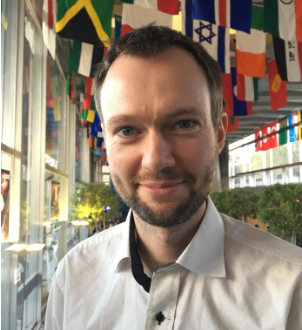With 93% of children globally breathing toxic air, Rob Hughes says it is hard to think of a more pressing challenge for us all—and especially doctors—to engage with
 When was the last time the clinicians reading this asked a patient about smoking? Or how many units of alcohol they drink? I’m prepared to guess that one or both of these routine questions trip off the tongue many times every day.
When was the last time the clinicians reading this asked a patient about smoking? Or how many units of alcohol they drink? I’m prepared to guess that one or both of these routine questions trip off the tongue many times every day.
Now, when did you last ask about whether the child with a respiratory infection lives on a busy road? I guess you advised the newly pregnant woman in your clinic about the benefits of folic acid, but did you recommend that she tries to walk on quieter roads or green routes during rush hour? Did you share with her the fact that breathing dirty air can lead to low birthweight, undermine neurodevelopment of the fetus, and increase the risk of developing asthma? Do any pre-op checklists or forms where you work ask about exposure to toxic air?
I hope that I’m wrong, but I worry that too many doctors are forgetting this risk factor. That needs to change. Fast.
I write this from Geneva, where the World Health Organization (WHO) is hosting the first ever global conference on air pollution and health. The headline statistics from the report launched on the eve of the meeting bear repeating: 93% of children globally are right now breathing toxic air (and this rises to 98% if you live in a low or middle income country). Air pollution kills seven million people prematurely every year—that’s 53 deaths in the four minutes it will take to read this article.
If these numbers don’t shock you, then how about the fact that non-smokers in New Delhi, many only in their 30s, now make up half of the lung cancer patients in the city. Or what about the mounting evidence that exposure to air pollution stunts lung development; precipitates and exacerbates asthma; and increases the risk of diabetes, heart disease, and stroke. Exposure to dirty air during pregnancy and early childhood can lead to a life sentence of illness.
This problem is big and it is getting bigger. In Delhi, as I write this, the schools are considering closing due to the apocalyptic pollution descending across the city. Rapidly growing cities in Africa, which often lack the monitoring data to show the scale of the problem, seem to be heading in a similar direction. In London the tragic case of Ella Kissi-Debrah, a 9 year old girl whose life was cut short by breathing dirty air, has given the issue new visibility. As the world urbanises and the West outsources our polluting industries and waste processing to low and middle income countries, I find it hard to think of a more pressing challenge for us all—and especially doctors—to engage with.
The good news is that we know what to do about air pollution, and doing it will bring other benefits too. Tackling dirty air can help prevent climate breakdown at the same time as saving millions of lives. There’s no need to choose between protecting public health, cleaning our air, and reducing greenhouse gas emissions; they come as a package. While more research is always welcome, if anyone says this is an issue where we need more information before we act, check their conflicts of interest. Clean air zones, active and public transport, sustainable energy, proper waste management, and electrification of vehicles will—and do—lead to cleaner air and healthier people.
Every one of us has a part to play. Here are three ideas for what you can do as a health professional and as individuals: (please share yours below in the comments)
1) Ask about toxic air as a risk factor: Build it into your consultations and forms. Include (and expect) a lot of “Don’t know” answers, but use these to raise awareness of this often invisible issue. Advise (particularly the most vulnerable) patients on how to reduce exposure. Suggest to all patients how they can understand and tackle this major determinant of health.
2) Advocate as health professionals: Doctors remain the most trusted professionals. Engage with this issue; put it on the agenda of your local, national, and global meetings. Advocate as health professionals for policy change related to sources of pollution where you live and work. Your patients will thank you. Check out Health Care Without Harm, the UK Health Alliance on Climate Change, or Doctors against Diesel to work out where to start.
3) Engage as citizens: Campaign for change locally through community and parent groups, write to your local representatives, and talk about air pollution with your friends and family. If you see cars idling outside your children’s school, speak with the council or school leadership. Be part of the solution and choose more active forms of travel. Check the quality of the air you breathe like you check the weather.
The duties of a doctor extend well beyond the clinic or operating theatre. The promotion and protection of the public’s health isn’t optional—it is central to our duties as doctors. Tacking toxic air that kills millions of people is a perfect illustration of why we must put this into practice.
Rob Hughes is a senior fellow at the Children’s Investment Fund Foundation (CIFF) in London, where he works on early childhood, urban health, and air pollution. Before joining CIFF, he worked at the UK Department for International Development as a health adviser in Pakistan, Yemen, London, and Zambia, and before that as a junior doctor in the NHS. You can find him on Twitter @R_Hughes1
Competing interests: I have read and understood BMJ policy on declaration of interests and declare the following interests: None.
